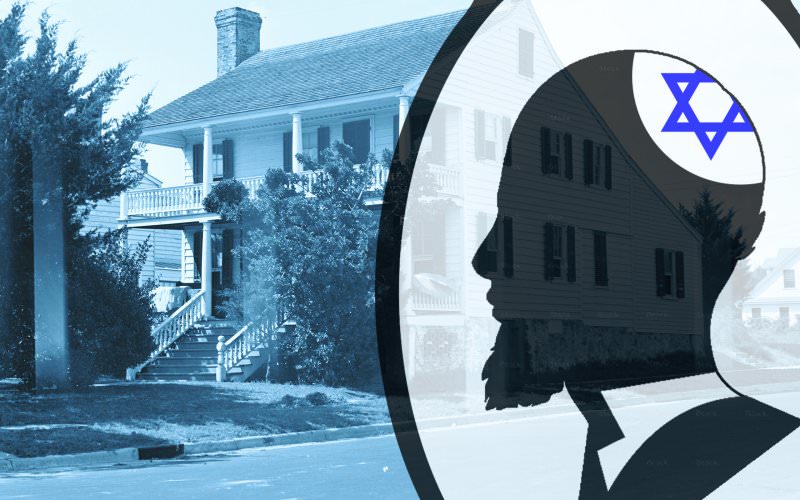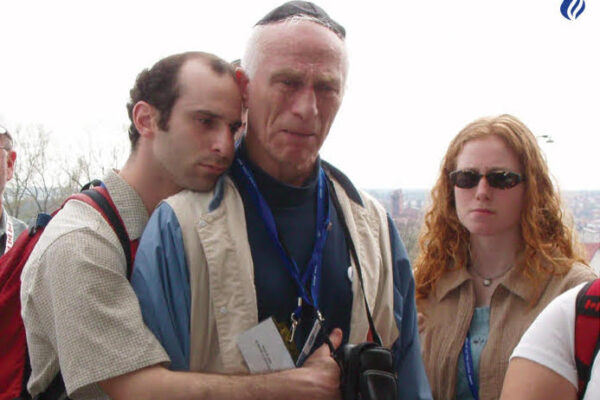
The story of the Jews in America shows how a people persecuted by Christians and Muslims in the Old World were welcomed, not just tolerated, in the New World. Even when anti-Semitism has sprouted, Americans’ ingrained decency and love of liberty has triumphed, squelching any budding bigotry.
Today, alas, college campuses are witnessing an un-American outbreak of Jew hatred, not “just” anti-Zionism. “Nearly three quarters” of Jewish students in last summer’s Cohen Center at Brandeis University survey reported being exposed to at least one anti-Semitic statement in the 2014-2015 academic year. The Amcha Initiative, a group that tracks anti-Semitism on U.S. campuses, inventoried 302 incidents at 109 schools in 2015, including a vandalized menorah, swastikas spray-painted on Jewish student centers, a Jewish student punched in the face, and a YikYak message posted at the University of Chicago that sneered: “Gas them, burn them and dismantle their power structure. Humanity cannot progress with the parasitic Jew.”
In an age of zero-tolerance for subtle microaggressions, these macroaggressions should be generating widespread outrage—rather than being ignored, or even excused sometimes. To resist this scourge, Jews and non-Jews alike should learn about Americans’ historic and unending disgust for anti-Semitism. A characteristic but forgotten moment occurred in 1809, when a Republican rival tried expelling the Federalist Jacob Henry (PDF) from North Carolina’s state legislature—because Henry was a Jew.
Henry counterattacked on Dec. 6, 1809, eloquently deploying the reason of the Enlightenment, the passion of the Revolution, the egalitarianism of the Declaration of Independence, and the guaranteed freedoms of the North Carolina Declaration of Rights and the federal Constitution itself. In a magnificent speech that would be reprinted in patriotic primers for decades thereafter, with schoolkids North and South forced to memorize it, Henry, the son of immigrants, taught his opponents Americanism 101.
Henry, who had been up all night preparing, was rattled. He started by apologizing, saying “I must confess that the resolution against me was quite unexpected.” Analyzing Section 13 of the state Declaration, echoing the First Amendment, Henry emphasized America’s guarantee of religious liberty: “All persons have a natural and inalienable right to worship Almighty God according to the dictates of their own consciences, and no human authority shall, in any case whatever, control or interfere with the rights of conscience.”
With freedom of religion defined not just as a “natural right” but an inalienable “one,” Henry repudiated denominational tests for government service. If someone’s religious principles were “incompatible” with American ideals, Henry reasoned, I myself would “aid and assist” in blocking that person from serving. But invoking the humility so central to Enlightenment thought, which acknowledged that human reason and faith can arrive reasonably at different conclusions, Henry refused to judge others’ theology. “Who among us feels himself so exalted above his fellows, as to have a right to dictate to them their mode of belief?” he thundered. In his era’s male-centered rhetoric, Henry called such pronouncements “a question between a man and his maker,” because it “requires more than human attributes to pronounce which of the numerous sects prevailing in the world is most acceptible [sic] to the Deity.”
Moreover, Henry insisted, democratic “governments only concern the actions and conduct of man, and not his speculative notions.” He insisted: “If a man fulfills the duties of that religion which his education and conscience have [convinced] him is the true one; no person… in this our land of liberty, has a right” to prosecute him or make him “suffer civil disqualification.” This notion of judging what we do, not what we believe, protects our freedoms and encourages diversity in thought.
At this point, two-thirds of the way through the speech, Henry had defended the notion of freedom of worship and conscience generally. But this proud American, this courageous American Jew, embraced his religion, refusing to cower behind generic freedoms for all rather than specific freedoms for him and his faith. “The religion I profess…,” he said, “enjoins upon its votaries the practice of every virtue, and the detestation of every vice.” And then, articulating tradition’s cradle-to-grave nurturing, he said: “This, then, … is my creed, it was impressed upon my infant mind; it has been the director of my youth, the monitor of my manhood, and will, I trust, be the consolation of my old age.”
Henry ended by affirming that he had no need “to make converts to my faith” and expected “the same charity … will be extended to myself,” mischievously quoting Matthew 7:12 about doing unto others as you wish them to do unto you.
As Henry sat down, the entire North Carolina House of Commons stood up, in the kind of mass demonstration against anti-Semitism—and against all forms of injustice—we need in some pockets of America today. In truth, Catholics had already served as both speaker of the house and state supreme court justice. Rather than amending their state constitution, the legislators used a loophole, deciding that a seat in the General Assembly was not what the constitution considered an “Office… of Truth or Profit.” North Carolina law demanded a Protestant oath until after the Civil War in 1868, but it was not applied (and rarely relevant).
Today, few remember Jacob Henry, although the successful application (PDF) to list his house on the National Register of Historic Places noted two distinctions. First, his house stands as “the largest and most ambitious Federal house in Beaufort.” Second, the house testifies to Jacob Henry’s “early and significant contribution in the struggle to realize some of the freedoms provided for in the United States Constitution.” We should honor him—and mimic his colleagues, too—dramatically repudiating all bigotry today.








